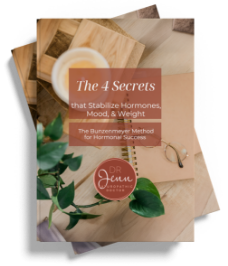As we settle into Fall, there’s always a sense of urgency that seems to arrive. After the relaxed vibe of summer – longer days and warm nights – the changing weather and colors bring us back to our “normal” routine in many ways.
When this change happens, I often see patients feel a little stressed to get back to their to-do list and set routine.
That’s why one of the things I focus on is setting up a stress management routine for the year. When you have that set routine for yourself, you are building resiliency and better ways to cope when stress hits.
How do you build resiliency to stress, you might be wondering?
Let’s go to the dictionary for a second because Merriam-Webster tells us that resiliency is the ability to overcome adversities, just like the stress coming at us – full force – all day, every day.
Sound familiar?
Managing that worry and overwhelm and tapping into resiliency all starts with awareness.
Be aware of the following:
- Tight shoulders.
- Your breathing in certain situations.
- Nutrition. Ask yourself, “Have I eaten?” Are you skipping lunch due to being too busy in your day? Do you have a balanced diet? (hint: protein, small amount of carbs, lots of veggies, and some healthy fats)
- Tracking your sleep. Are you going to bed early enough and getting good, restful sleep?
- Stress Reaction. How do you react when you are amongst the stress? Are you “reacting” or processing and then reacting (pro-active)? This is a huge distinction and often overlooked.
Once you aware of your habits and your go-to coping mechanisms with stress, you are now ready to take the simple steps towards your resiliency.
Here are a few of my favorite ways to find that resiliency:
- Take Control of Your Breath – practice meditation or yoga. Be aware of your breaths in each pose and try to take that work “off” the mat into your everyday life – even for a few minutes each day.
- Regular Rest Breaks – it’s just NOT normal to “go” all day and keep pushing with no break. Go for a walk around the office/block/neighborhood, talk to your co-workers (that you enjoy being with!), phone a friend, read a bit of your book, or sit and just breathe! Schedule it each day and stick to it for a week – and see how you feel.
- Support System – make a list of your go-to people who can be there for a quick chat when you feel stress coming on. Also, make sure to schedule regular “play” time (yes, even as an adult!). Grab coffee with a friend, take a weekend getaway, go to the park, beach, etc.
- Physical Exercise Routine – this doesn’t mean you have to spend 2 hours at the gym. This means you have a routine that works for you – walk after dinner, morning run, cycling with friends, a fitness class – Movement – whatever works for you.
- Set Routine – having consistent bed/wake and meal times helps the adrenal glands work less. This is hugely important for your health!
- Naturopathic Support – taking a deeper look and creating a customized plan of support for your adrenal glands, nervous system, diet, digestion, and immune system.
Let’s get scientific for a second…
Our stress glands (the adrenals) release the adrenaline/cortisol that helps us manage the stress. That’s why the #1 support for the adrenals includes routine (as listed above) to decrease the burden on the adrenals.
Because any time our routine gets out of whack, our adrenals have to work harder to moderate the impact of stress. Don’t get me wrong, there is good stress – like going on vacation or moving to a better house, But if we have an ongoing, inconsistent routine and/or constant stress or busy-ness – this is when adrenaline and eventually cortisol are constantly being released, which affects our adrenals more.
So take some time this fall and establish your routine. By the holidays, your body will thank you for it. Guaranteed.


